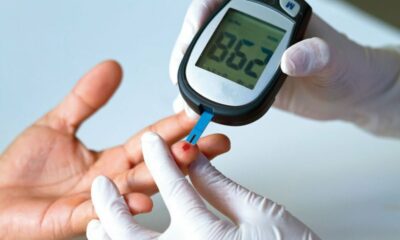When you picture someone suffering from depression, you might see them stooped down and feeling hopeless. However, things aren’t always as they seem. Suffering is frequently even more subtle. For men, the truth of it might be hidden by cultural pressure to fit in with a particular image as well as a lack of knowledge. Here’s how to identify the symptoms and indicators.
Male depression symptoms
When it comes to depression in men, it’s crucial to keep in mind that the symptoms aren’t always obvious. It could be difficult for you to identify in a friend or even in yourself. Inquire the following if something doesn’t look right:
Do you experience consistent, inexplicable bodily symptoms?
Common symptoms like unhappiness or negativity aren’t often the primary one. In actuality, men are more prone to have physical symptoms. This include fatigue, agitation, headaches, stomach issues, or chronic pain.
Do you try to evade symptoms and indicators by finding distractions?
Many men are unaware of the full impact their symptoms are having on them. Rather, they may take every precaution to keep it from themselves and from anyone else.
You may be keeping yourself stuck if you frequently find yourself turning to distractions to numb uncomfortable feelings. For instance, when you’re feeling down, do you grab for a drink, keep occupied to keep from being by yourself, or take the other approach and withdraw?
Are you trying to avoid discussing it?
It’s possible that you’re not used to discussing your feelings with people. It’s not the society that the majority of us grew up in, after all. But chances are, you won’t tell a mental health professional either if you feel like you can’t tell a close friend how you’re feeling.
Are you refusing to receive treatment?
Consider your reasons if you feel you may be depressed but are reluctant to seek assistance by talking to someone. Remember that you might try counseling discreetly if the stigma and fear of losing love or respect are the main causes.
Typical reasons why men experience depression
Depression rarely has a single underlying cause. It may arise from a confluence of elements, including:
- Violence or trauma.
- stressful occurrences in life.
- medical ailments.
- Past usage of drugs or alcohol.
- A lack of social support or loneliness.
- Ancestral history of mental illnesses.
- A challenging upbringing or parents who lack emotional support.
Men’s diagnosis of depression
Should these symptoms last more than two weeks and cause disruptions to your social, familial, or professional life, you may receive a diagnosis of depression:
- Intolerance, impatience, mood swings, or irritability.
- Absence of drive, enthusiasm, energy, or interest in things.
- speaking, moving, or sleeping poorly.
- feeling apprehensive, tense, powerless, guilty, or depressed.
- shifts in weight or hunger, stomach problems, pains, and physical pain.
Do men and women experience depression in different ways?
Men often experience depression in distinct ways, maybe as a result of a combination of biological and societal stigma. Males are more prone to act dangerously, with impatience, wrath, and aggression. In contrast, women typically exhibit greater melancholy or pessimism. Additionally, men are more likely to use drugs to numb their pain, which frequently makes symptoms worse.
The risk of suicide is one of the main worries when it comes to male sadness. Men commit suicide at a higher rate than women, although women attempt suicide more often.
Options for treatment
For mood disorders, a triage of counseling, self-care, and medical assistance is effective.
Self-assistance
Online resources abound that advise depressed individuals to improve their diet, get more sleep, exercise, and try to alter their negative thinking patterns. However, when you lack drive or energy, those tasks may seem unachievable.
Therefore, attempt to think creatively instead. What is the smallest action you can do that could lead to a larger improvement? Perhaps all you do is watch a comedy show every night before going to bed.
Alternatively, if you’re too stressed, too busy, or just trying to push your feelings aside, consider setting out two days a week to allow yourself to be completely depressed? After all, everyone experiences dark times in life, and sadness is a common human feeling. So why not give yourself permission to feel depressed rather than putting pressure on yourself to “get over it”?
Perhaps your symptoms are simply alerting you to the need for some self-care.
Talk therapy
Numerous studies demonstrate that various talk therapy sessions help alleviate the symptoms of clinical depression. This comprises mindfulness-based cognitive therapy (MBCT), interpersonal psychotherapy (IPT), and cognitive behavioral therapy (CBT). Just remember that not every approach or therapist will work for you. It may be necessary to try a few different folks before determining who is a good fit.
The development of self-compassion is also crucial for mental wellness. Try downloading a self-compassion app that provides daily prompts to practice a new skill as a place to start. For instance, practicing a two-minute meditation or a brief body scan if you’re feeling stressed.
Medical assistance
If you’re not interested in taking antidepressants, being checked out can still have a significant impact on your symptoms. Your mood might be impacted by an underlying medical problem. Even while visiting the doctor may seem like a pain, it can be all you need to start down a healthier path.
Supporting a loved one
Experiencing support can significantly enhance our capacity to manage. If you think someone you love may be depressed, you might want to try these suggestions:
Pay attention without passing judgment.Provide a secure environment for them to express themselves by being kind and empathetic.
Pay attention to your speech. It’s possible that you’re being unsupportive or judgmental without realizing it. Consider ways to react with compassion in your words and deeds, and take some time to think about how you typically respond.
Learn and look after yourself. Find out more about depression’s symptoms and indicators, as well as the best ways to support the people you care about. In the interim, remember to take care of yourself so that you can support the other person emotionally.
Take an active role. Observe them while being mindful of their personal space and privacy. Try to be supportive, but don’t force a conversation if they want not to. Consider additional methods to assist them, such as doing their errands or spending time with them. Just let them know you’re there for them whenever they need, and check in regularly.
Ultimately, even though you may have heard the proverb “Be a man and hold it in” in the past, it’s time to realize that it’s highly ineffective these days. Thankfully, society is beginning to acknowledge that humans are social, emotional creatures. To live a healthier life, we all need to be able to freely express who we are. Lastly, keep in mind that unpleasant feelings are a part of the experience. The ebbs can occasionally hit us harder than we’d want. However, we may improve our ability to handle and deal with them with practice.

 Diabetology2 weeks ago
Diabetology2 weeks ago
 Diabetology2 weeks ago
Diabetology2 weeks ago
 General Medicine1 week ago
General Medicine1 week ago
 Diabetology2 weeks ago
Diabetology2 weeks ago
 Diabetology2 weeks ago
Diabetology2 weeks ago
 General Medicine1 week ago
General Medicine1 week ago
 Diabetology4 days ago
Diabetology4 days ago
 Diabetology4 days ago
Diabetology4 days ago

















